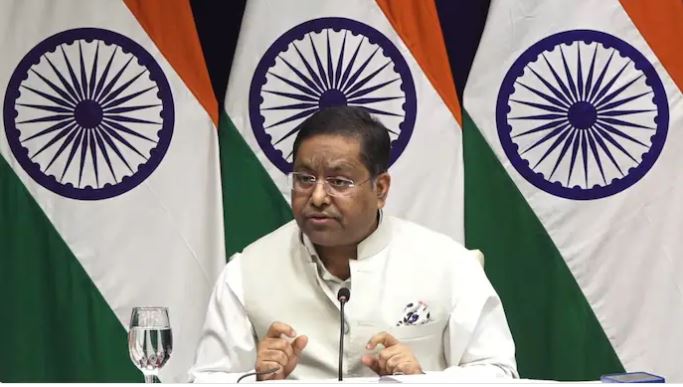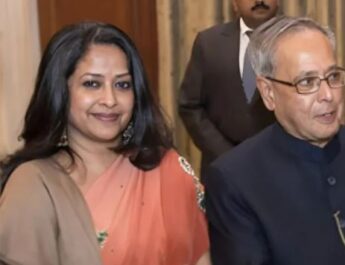New Delhi: On Tuesday, the Ministry of External Affairs (MEA) reaffirmed India’s enduring stance that any matters related to Jammu and Kashmir must be resolved bilaterally with Pakistan, a policy that remains unchanged. MEA spokesperson Randhir Jaiswal emphasized this during a briefing, stating, ‘Our established position is that issues concerning the Indian Union Territory of Jammu and Kashmir should be addressed directly between India and Pakistan. This policy has not altered. The primary concern is the withdrawal of illegally occupied Indian territory by Pakistan.’
Jaiswal’s comments were in response to US President Donald Trump’s assertion that the United States had facilitated discussions for a ceasefire between India and Pakistan, despite India’s insistence that the Pakistani DGMO had reached out to his Indian counterpart to propose a ceasefire. He elaborated, ‘The details regarding the date, time, and language of the agreement were finalized during a phone conversation between the DGMOs of both nations on May 10, 2025.
The MEA received a request for this call from the Pakistani High Commission at 1237 hours, although there were initial technical difficulties in establishing the hotline connection.’ Furthermore, he noted, ‘It is important to recognize that early on the morning of the 10th, we executed a highly effective strike on critical Pakistani Air Force installations, which led to their willingness to cease hostilities. It was the strength of Indian military action that compelled Pakistan to halt its aggression.’
Indus Waters Treaty
Additionally, Jaiswal stated that India would suspend the Indus Waters Treaty until Pakistan unequivocally renounces its support for cross-border terrorism. His comments followed a recent agreement between India and Pakistan to a ceasefire after Operation Sindoor, which had escalated military tensions between the two nuclear powers.
The Indus Waters Treaty was established with goodwill and friendship as outlined in its preamble. Nevertheless, Pakistan has disregarded these principles by fostering cross-border terrorism for many years, according to Jaiswal.
He further stated, ‘India will suspend the Treaty until Pakistan genuinely and permanently renounces its backing of cross-border terrorism. It is also important to recognize that climate change, demographic shifts, and technological advancements have introduced new challenges.’




